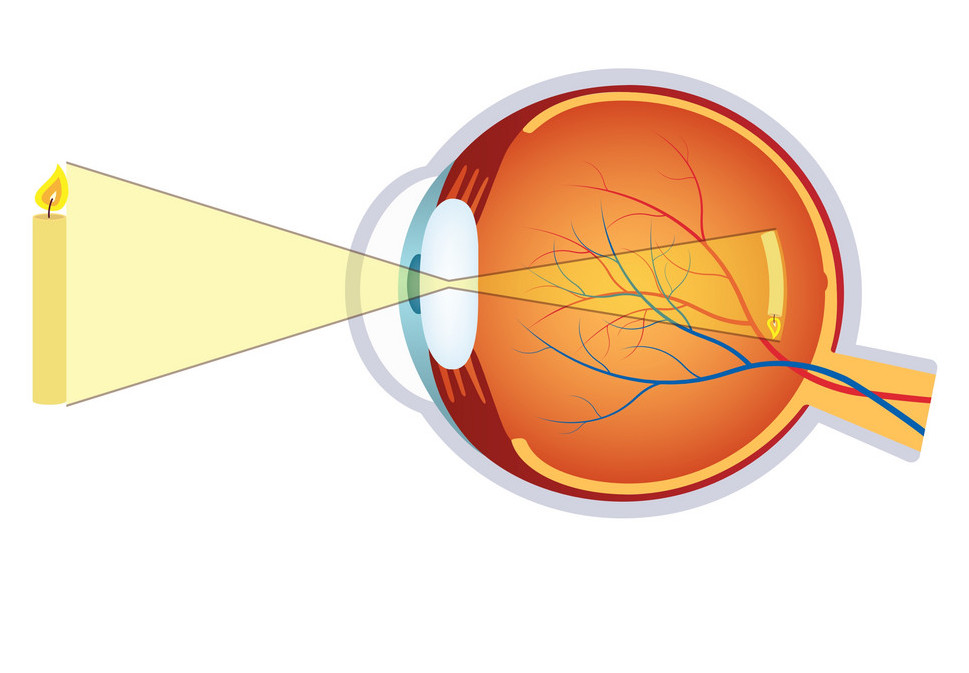Introduction
Vision is one of our most essential senses, allowing us to experience the world around us. However, vision problems can affect people of all ages and backgrounds. Hyperopia, commonly known as long-sightedness, is one such vision issue. Let us know more about hyperopia, exploring what it is, its causes, symptoms, diagnosis, and available treatment options. One of the treatment options includes advanced treatments such as Cataracts, Glaucoma, or Diabetic Eye issues, providing comprehensive care for all eye-related concerns.
What is Hyperopia?
Hyperopia, often referred to as long-sightedness or farsightedness, is a common refractive error of the eye. This condition affects the way the eye focuses on objects at different distances. It causes distant objects to be seen more clearly than close-up objects.
It occurs when the light entering the eye focuses behind the retina instead of directly on it, making close-up vision blurry. This is due to the light rays converging behind the retina, resulting in a weaker ability to focus on objects up close.
What are the causes ?

It can have both genetic and environmental causes. Here are some of the primary factors contributing to the development of hyperopia:
- Genetic predisposition
- The curvature of the cornea. A flatter cornea can lead to hyperopia.
- Short eyeball
- Aging
What are the symptoms of Hyperopia?
It can manifest with a range of symptoms, which can vary in severity. Some common signs and symptoms of hyperopia include:
- Blurred vision
- Eye strain
- Headaches
- Squinting
- Difficulty reading
- Eye fatigue
How to diagnose ?
Diagnosing hyperopia involves a comprehensive eye examination by an optometrist or ophthalmologist. The following procedures are typically part of the diagnostic process:
- Visual acuity test to analyze your ability to see clearly at different distances.
- Refraction test to determine the precise prescription for corrective lenses (glasses or contact lenses) to correct hyperopia.
- Retinoscopy
- Slit-lamp examination
What are the treatment options for Hyperopia?
It can be effectively managed through various treatment options, depending on the severity and individual preferences. Here are the most common approaches:
- Prescription eyeglasses
- Contact lenses
- Refractive surgery.
- Bifocal or progressive lenses
- Reading glasses
Prevention and Tips
While you can’t prevent hyperopia if it’s primarily due to genetic factors, you can take steps to manage the condition effectively and maintain healthy eyes:
- Regular eye exams
- Follow your prescription
- Maintain a healthy lifestyle
- Reduce eye strain
- Protect your eyes from UV rays
Conclusion
While hyperopia has a genetic component, it can be managed effectively with eyeglasses, contact lenses, refractive surgery, or other specialized treatments. Regular eye exams and a commitment to good eye health practices are crucial for those with hyperopia, ensuring clear vision and overall well-being. If you suspect you have hyperopia or are experiencing vision problems, it’s essential to consult with an eye care professional for a comprehensive examination and appropriate treatment options.
So, get ready for better eyesight at Laxmi Eye Institute and Hospital in Navi Mumbai with centers in Panvel, Kharghar, Kamothe, and Dombivali. Our expert doctors and modern facilities make it a safe choice. No more glasses or contacts – our treatment is precise, personalized, and secure. Recover quickly and enjoy a clear vision for a long time. Many people trust us, and you can too. Contact Laxmi Eye Institute and Hospital to start your journey to better vision. For questions and appointments, click here.

